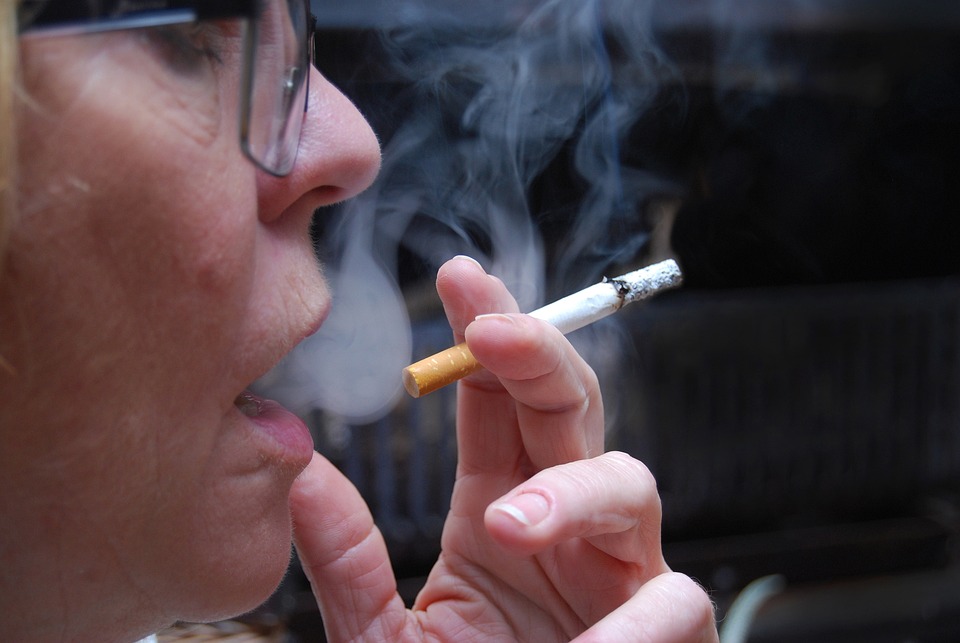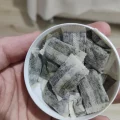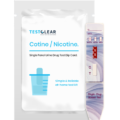Nicotine is a highly addictive substance found in tobacco products, including cigarettes, cigars, and chewing tobacco. When tobacco products are smoked, the nicotine is absorbed through the lungs and rapidly enters the bloodstream. When tobacco products are chewed, the nicotine is absorbed through the lining of the mouth and enters the bloodstream.
When tobacco products are smoked, the nicotine is rapidly absorbed through the lungs and reaches peak levels in the bloodstream within 10-20 seconds. This rapid absorption is due to the high surface area of the lungs, which allows for the efficient transfer of nicotine from the smoke into the bloodstream. Once in the bloodstream, nicotine is distributed throughout the body and reaches the brain within seconds, where it produces a pleasurable sensation known as a “rush.”
When tobacco products are chewed, the nicotine is absorbed through the lining of the mouth and enters the bloodstream more slowly than when smoking. However, the nicotine levels in the bloodstream can remain elevated for a longer period of time compared to smoking. This is because the nicotine is absorbed through the mucous membranes of the mouth and throat, which have a lower surface area than the lungs. Once in the bloodstream, nicotine is distributed throughout the body and reaches the brain, where it produces the same pleasurable sensation as smoking.
In addition to smoking and chewing tobacco products, nicotine can also be absorbed through the skin from nicotine pouche, gums, and lozenges used in nicotine replacement therapy. When using these products, the nicotine is absorbed through the skin or mucous membranes and enters the bloodstream. The rate of absorption and the levels of nicotine in the bloodstream depend on the type of product and the individual’s metabolism.
How To Flush Nicotine Out Fast From Your System
Flushing nicotine out of your system involves eliminating the nicotine from your bloodstream and promoting the excretion of nicotine byproducts through urine and sweat.
Here are some ways to flush nicotine out of your system quickly:
- Hydration: Drinking plenty of water is one of the most effective ways to flush nicotine out of your system. Nicotine is primarily eliminated through urine, so increasing your water intake can help dilute the concentration of nicotine in your urine and promote its excretion. Aim to drink at least 8-10 glasses of water per day to stay hydrated and help flush nicotine out of your system.
- Exercise: Physical activity can help speed up the metabolism and promote the excretion of nicotine byproducts through sweat. Exercise can also help reduce cravings and withdrawal symptoms associated with nicotine withdrawal. Engage in moderate exercise, such as walking, jogging, or cycling, for at least 30 minutes per day to help flush nicotine out of your system.
- Healthy Diet: A healthy diet can help support your body’s natural detoxification process and promote the excretion of nicotine byproducts. Eat a balanced diet rich in fruits, vegetables, lean protein, and whole grains. Avoid processed foods, sugary drinks, and foods high in sodium, which can impair the body’s natural detoxification process.
- Supplements: Certain supplements, such as vitamin C and B-complex vitamins, can help boost the body’s natural detoxification process and promote the elimination of nicotine byproducts. Consult with a healthcare provider before taking any supplements to determine the appropriate dosage and potential side effects.
- Herbal remedies: Certain herbs, such as ginger, ginseng, and milk thistle, have natural detoxifying properties and can help promote the elimination of nicotine byproducts. Consult with a healthcare provider before taking any herbal remedies to determine the appropriate dosage and potential side effects.
- Nicotine replacement therapy: Nicotine replacement therapy, such as nicotine patches, gum, or lozenges, can help reduce cravings and withdrawal symptoms associated with nicotine withdrawal. Nicotine replacement therapy does not flush nicotine out of your system but can help you quit smoking or the use of nicotine products altogether.
- Time: Ultimately, time is the most effective way to flush nicotine out of your system. Nicotine and its byproducts can remain in the body for several days, depending on how much and how often you smoke or use nicotine products. The body’s natural detoxification process, which involves the liver and kidneys, will gradually eliminate nicotine byproducts over time.
Prevention of Nicotine Addiction
Preventing nicotine addiction involves avoiding smoking or the use of nicotine products altogether. Here are some tips to prevent nicotine addiction:
- Avoid smoking: Do not smoke or try to quit smoking if you are already a smoker.
- Avoid nicotine products: Avoid using nicotine products, such as chewing tobacco, snuff, or e-cigarettes.
- Seek support: Seek support from friends, family, or healthcare professionals if you are struggling with nicotine addiction. Nicotine addiction is a chronic condition that requires ongoing support and management.
- Find healthy alternatives: Find healthy alternatives to smoking or the use of nicotine products, such as exercise, meditation, or hobbies that can help reduce stress and promote relaxation.
- Stay informed: Stay informed about the harmful effects of smoking and the use of nicotine products. Understanding the health risks associated with nicotine addiction can help motivate you to quit and stay nicotine-free.
In conclusion, flushing nicotine out of your system involves promoting the elimination of nicotine and its byproducts through urine and sweat. Hydration, exercise, a healthy diet, supplements, herbal remedies, nicotine replacement therapy, and time can all help flush nicotine out of your system. However, the best way to improve your overall health and prevent nicotine addiction is to quit smoking or the use of nicotine products altogether. Seek support from friends, family, or healthcare professionals to help you quit and stay nicotine-free.





